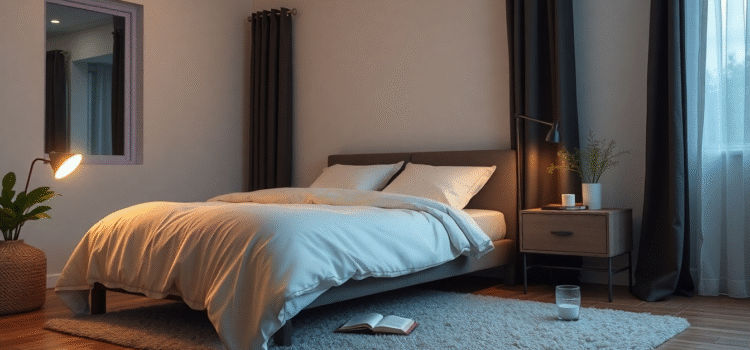
Psychiatrist and Neuroscientist Reveal 3 Evidence-Based Tips to Improve Sleep Amid Stress
In today’s fast-paced world, stress has become an almost ubiquitous part of modern life, often wreaking havoc on one’s mental and physical wellbeing. As sleepless nights become more common, it is crucial to explore effective strategies to combat this growing issue. A team comprising a psychiatrist and a neuroscientist has shared three evidence-based strategies to improve sleep quality during stressful periods. These science-backed sleep tips aim to provide relief and enhance overall sleep health.
Cognitive-Behavioral Therapy for Insomnia (CBT-I): An Effective Approach
Sleep disturbances are not uncommon among individuals experiencing heightened stress levels. Cognitive-behavioral therapy for insomnia (CBT-I) emerges as a spotlight among evidence-based sleep improvement techniques. Studies reveal a significant improvement in sleep patterns in 70-80% of participants who engaged in CBT-I. By addressing both the cognitive and behavioral aspects of sleep problems, CBT-I provides a structured way to alter detrimental sleep habits and negative thought patterns. This method facilitates an overall improvement in sleep and mental health, offering an effective strategy for better sleep during stress.
Maintaining a Consistent Sleep Schedule: A Simple Yet Powerful Step
In the pursuit of sleep optimization, maintaining a regular sleep schedule stands as a cornerstone. The neuroscientist’s advice underscores the crucial role of consistency. Irregular sleep patterns can increase the likelihood of developing sleep disorders by 45%. By setting a fixed time for going to bed and waking up, individuals can align their circadian rhythms, thus promising better sleep quality. Furthermore, a regular sleep routine can aid in stress reduction and improve overall sleep efficiency.
Mindfulness Meditation: Bridging Stress Reduction and Better Sleep
Mindfulness meditation is gaining traction as a powerful tool in the realm of sleep and mental health. Research indicates that consistent practice of mindfulness meditation can lead to a 60% reduction in sleep disturbances. This form of meditation encourages relaxation and can disrupt the cycle of stress and sleep disturbances commonly experienced during challenging times. As such, it provides a neuro-scientifically supported method to improve sleep amidst stress, making it an invaluable tool in a holistic sleep improvement strategy.
- Engage in Cognitive-Behavioral Therapy for Insomnia for structured sleep improvement.
- Adopt a consistent sleep schedule to align your circadian rhythms.
- Practice mindfulness meditation regularly to reduce stress and enhance sleep quality.
Conclusion
Addressing sleep issues in the face of stress requires actionable, evidence-supported strategies. Cognitive-behavioral therapy for insomnia, coupled with a consistent sleep routine and mindfulness meditation, provides a comprehensive approach to demanding sleep challenges. By implementing these science-backed sleep tips, individuals can experience a marked improvement in sleep patterns and mental wellness. Readers are encouraged to share their thoughts or experiences in the comments section below.
Sources
- Cognitive Behavioral Therapy for Insomnia | Sleep Foundation
- Sleep Hygiene Tips for Better Sleep | Healthline
- The Impact of Mindfulness Meditation on Sleep | NCBI
Frequently Asked Questions
What is evidence-based sleep improvement?
Evidence-based sleep improvement refers to methods and strategies for enhancing sleep that are supported by scientific research and data-driven studies.
How do stress reduction sleep techniques work?
Stress reduction sleep techniques, such as mindfulness meditation, work by promoting relaxation and disrupting negative thought cycles that contribute to sleep disturbances.
Can neuroscience tips for better sleep make a difference?
Yes, neuroscience tips for better sleep, such as implementing a consistent sleep schedule, can significantly improve sleep quality by aligning with your body’s natural rhythms.
What psychiatrist sleep advice is effective during stress?
Psychiatrists often recommend cognitive-behavioral therapy for insomnia (CBT-I) as an effective strategy to manage and improve sleep quality during periods of stress.
How do cognitive techniques for sleep improvement aid in better rest?
Cognitive techniques help reframe negative thoughts about sleep, thereby reducing anxiety surrounding sleeplessness and promoting a more restful sleep experience.







